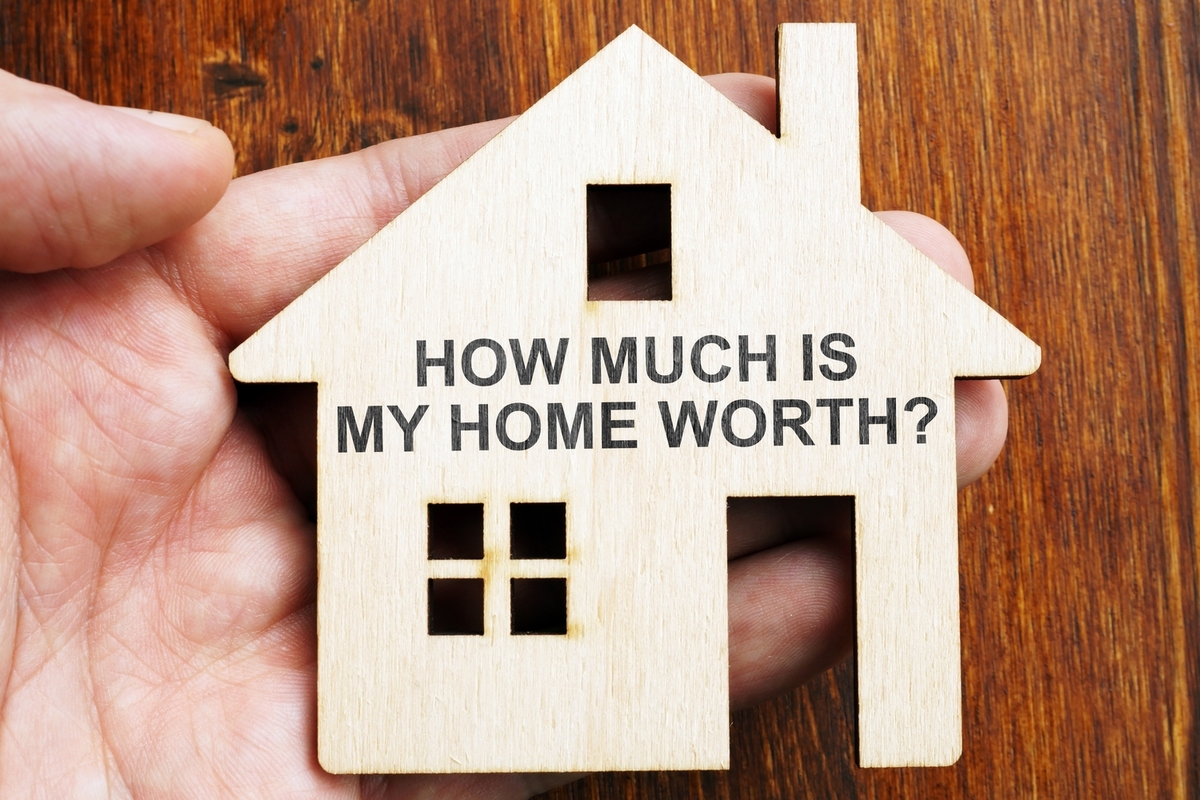What Is My House Worth Right Now? Understanding Home Valuation

In today’s dynamic real estate market, understanding the current value of your home is crucial whether you’re planning to sell, refinance, or simply curious about your investment. Home valuation is influenced by a myriad of factors, from market trends to property-specific characteristics. This article delves into the key elements that determine your house’s worth and provides practical steps to estimate its current market value.
Determining the value of your home involves a combination of art and science. Here are the primary factors that influence home valuation:
-
Location : The adage ‘location, location, location’ holds true in real estate. Properties in desirable neighborhoods with good schools, low crime rates, and proximity to amenities like shopping centers and parks tend to have higher values. Additionally, the overall economic health of the area, including job growth and infrastructure development, plays a significant role.
-
Comparable Sales (Comps) : Real estate agents and appraisers often look at recent sales of similar properties in your area, known as comparables or comps. These sales provide a benchmark for what buyers are willing to pay for homes like yours. Key aspects considered include the size, age, condition, and features of the properties.
-
Property Condition : The condition of your home significantly impacts its value. Well-maintained homes with modern updates and renovations typically fetch higher prices. Conversely, properties in need of repairs or outdated features may see a decrease in value. Regular maintenance and timely upgrades can enhance your home’s appeal and marketability.
-
Market Conditions : The real estate market is cyclical, with periods of high demand and low supply driving up prices, and vice versa. Understanding whether you’re in a buyer’s or seller’s market can help you gauge your home’s value. Economic indicators, interest rates, and seasonal trends also influence market conditions.
-
Home Size and Usable Space : The size of your home, including the number of bedrooms and bathrooms, directly affects its value. Additionally, the layout and usability of the space matter. Homes with open floor plans, ample storage, and functional living areas are more attractive to buyers.
-
Age and Style : The age and architectural style of your home can impact its value. While older homes may have charm and character, they might also require more maintenance. Modern homes with contemporary designs and energy-efficient features are often more appealing to today’s buyers.
-
Economic Factors : Broader economic factors, such as inflation, employment rates, and consumer confidence, can influence home values. A strong economy generally leads to higher property values, while economic downturns can result in decreased demand and lower prices.
How to Estimate Your Home’s Value
-
Online Valuation Tools : Several websites offer free home valuation tools that provide an estimate based on public data and recent sales. While these tools can give you a ballpark figure, they may not account for unique features or recent upgrades to your property.
-
Hire a Professional Appraiser : For a more accurate assessment, consider hiring a licensed appraiser. An appraiser will conduct a thorough inspection of your home and provide a detailed report based on various factors, including comps, property condition, and market trends.
-
Consult a Real Estate Agent : Experienced real estate agents have in-depth knowledge of the local market and can provide a comparative market analysis (CMA). A CMA compares your home to similar properties that have recently sold, are currently on the market, or were listed but did not sell.
-
Review Property Tax Assessments : Your local tax assessor’s office periodically assesses property values for tax purposes. While these assessments may not always reflect the current market value, they can provide a useful reference point.
-
Consider Recent Upgrades and Renovations : If you’ve made significant improvements to your home, such as a kitchen remodel or new roof, these upgrades can increase your home’s value. Keep records of all renovations and their costs to provide to appraisers or potential buyers.
Common Mistakes to Avoid
-
Overpricing : Setting an unrealistic price can deter potential buyers and result in your home sitting on the market for an extended period. It’s essential to be objective and consider professional advice when pricing your home.
-
Ignoring Market Trends : Failing to account for current market conditions can lead to inaccurate valuations. Stay informed about local real estate trends and adjust your expectations accordingly.
-
Neglecting Curb Appeal : First impressions matter. Enhancing your home’s curb appeal with landscaping, fresh paint, and minor repairs can significantly impact its perceived value.
-
Overlooking Hidden Costs : Selling a home involves various costs, including agent commissions, closing fees, and potential repairs. Factor these expenses into your valuation to avoid surprises.
By understanding the factors that influence home valuation and utilizing the available resources, you can gain a clearer picture of what your house is worth right now. Whether you’re planning to sell or simply curious, an accurate home valuation is a valuable tool in making informed real estate decisions.
Determining the current value of your home is a multifaceted process that requires consideration of various factors, from location and market conditions to property-specific characteristics. By leveraging online tools, professional appraisals, and expert advice, you can obtain a reliable estimate of your home’s worth. Staying informed about market trends and maintaining your property can further enhance its value. Ultimately, an accurate home valuation empowers you to make well-informed decisions, whether you’re selling, refinancing, or simply assessing your investment.



